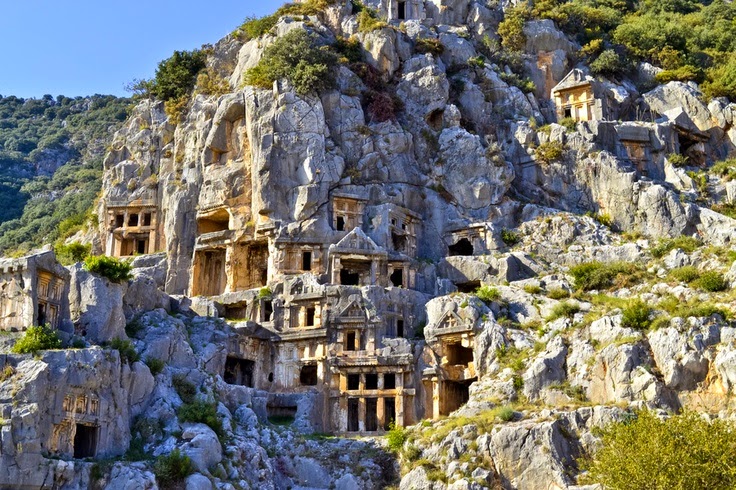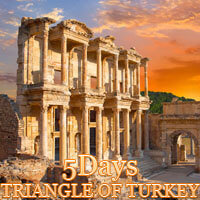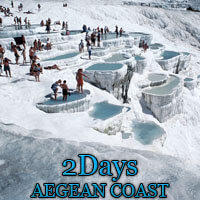
Demre
Antalya Demre
Demre is a district located to the south of the Teke Peninsula to the west of the Antalya gulf.
The focal point of Turkey’s natural beauties, historical monuments, sparkling seas and greenhouses. Demre is the closest exit gate to Kekova Gulf. Located in the foothills of the Taurus Mountains and between the turquoise-colored sea of ??the Mediterranean, Demre fascinates all local and foreign tourists with the smell of lemon and orange flowers in spring.
History
Myra (Demre) is always known as one of the most important cities of Lycia. The earliest coins are BC. It is dated to the 3rd century. But the city at least BC. It is estimated to have been established in the 5th century. During the Roman rule, the Myra developed and enriched civilians generously funded civilian projects. Before you move out of Andriake Port to go to Pol Rome, M.S. He visited the city in the 6th century. During the Byzantine period Myra became an important administrative and religious center. In Myra, which is also the bishop’s center, Nicholaus IV. At the beginning of the century he served as a bishop; The public has made love for himself, and has suffered so much for the sake of faith. Since then Myra has always been a cross-road-based place. In this respect, Demre has attracted attention from every aspect of the Christian World. It is tradition to do Santa Claus activities every year on December 6th. We can not see a majority of the anticipated remnants of an important city like Myra today in Demre. The remains of the greatest theatricals of Lycia are standing today and this is the best preserved theatrical of Lycia at the same time. 29 seats and 9-10 thousand spectators capacity theater rests on the hill. Even today it is sometimes used for festivals and games.
The Myra metropolis contains important examples of various types of Lycian graves. The theater was divided into east and west metropolis, and rocky, rising behind Myra, was built on the hill. The rocks were engraved and the graves were embossed and embellished with letters. Another important remnant is the church of St. Nicholas. Today the church is 7 m. Below ground level. The bones of St.Nicholaus were in a marble grave inside the church. But some bones were stolen by Italians and Bari was abducted. A Russian Prince has restored Church in 1862, St. Nicholas is considered sacred in Russia. The Russians have replaced the dome with a drug vault, adding a church bell. Some bones today are exhibited in Antalya Museum. St. Nicholas is the patron saint of the children, the seafarers and the heavy-duty workers. As is known, the whole world is the Christmas Father of his children.
Demre, who first attained the status of a village with the name Eynihal in 1904, On June 6, 1968, four villages were merged into a municipality; On 4 July 1987 it became the district with the name of Kale. The district was named Demre in 2005.
Geography:
Demre is a district located to the south of the Teke Peninsula in the west of the Antalya bay and is bordered by Finike District to the east and Kaş District to the west and Mediterranean to the south.
Surrounded by mountains on three sides, the land in which the land was founded has come to fruition from the fertile alive soils that Demre Çayın brought. In the town of Demre, where typical characteristics of the Mediterranean climate are seen, summers are hot and dry, winters are warm and rainy.
The total area of the county is 47,322 hectares, the agricultural land is 5,350 hectares, the meadow pasture is 50 hectares, the forest land is 31,922 hectares, the water surface is 300 hectares, and the non-agricultural land is 9,600 hectares.
Transportation:
Finike – Kaş districts can be reached with the bus to Kaş, which departs from the Antalya terminal, which is famous with Christmas Father.













